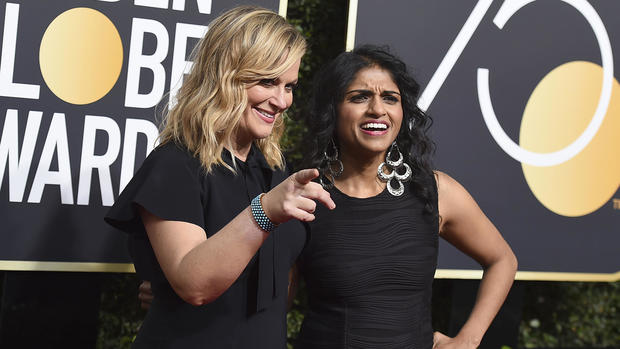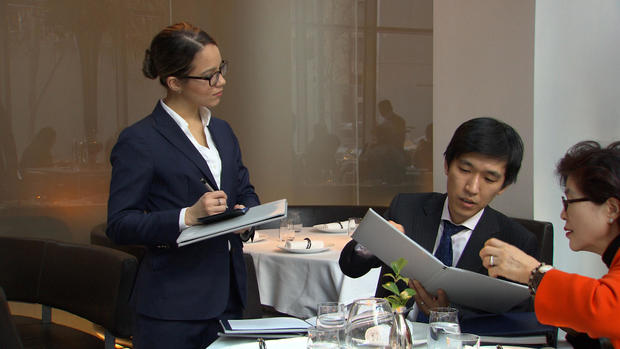Restaurants' tipping point
While the #MeToo movement tackles sexual harassment, and equal pay advocates seek salary parity, there is at least one group of working women particularly well positioned to fight both battles: restaurant workers.
Saru Jayaraman, who directs the Food Labor Research Center at UC Berkeley, tells 60 Minutes Overtime that the disparity in pay between waiters and waitresses, comes, in part, from the customer.
"All the research shows that men earn much more in tips than women," she tells Lesley Stahl in the video above. "Tipping, unfortunately, reflects all the bias that we as Americans have."
Unequal pay and sexual harassment go hand-in-hand, Jayaraman has found. Research shows that for a woman, the amount she makes in tips depends on her willingness to be touched. Ninety percent of restaurant workers report experiencing unwanted sexual behavior, making it the single largest source of workplace sexual harassment complaints to the Equal Employment Opportunity Commission.
"You're living completely off your tips," Jayaraman explains. "You have to put up with whatever the customer does to you. And even worse, we find that in these states with a lower wage for tipped workers, managers tell you dress more sexy, show more cleavage, wear tighter clothing in order to make more money in tips."
Tipped workers frequently rely on their tips because they can be paid far less than minimum wage—as little as $2.13 an hour. It's called a sub-minimum or tipped minimum wage, and it has only gone up $2 over the last 80 years. The National Restaurant Association, the trade association that represents more than 500,000 restaurant locations, has lobbied state legislatures and Congress to keep the minimum wage low.
In doing so, Jayaraman says the lobby is also enforcing gender disparity. That's because 70 percent of tipped workers are women, she says, while the cooks in the kitchen who earn a higher wage are majority male.
Jayaraman says the solution lies in eliminating the sub-minimum wage entirely. She recently helped New York restaurateur Danny Meyer devise a policy of eliminating tipping by building the cost of service into the bill.
"The solution is so concrete and tangible," she says. "Pay these women an actual wage, just like the kitchen staff, just like every other industry. Let tips be on top of that, as they always were intended to be. And let them actually not have to put up with anything and everything from a customer."
To see Lesley Stahl's 60 Minutes story on how the large tech company Salesforce tried—and then tried again—to close its gender pay gap, click here.
Saru Jayaraman's interview location courtesy of Alfred's Steakhouse and the Alta Group.
The video above was produced by Rome Hartman and Sara Kuzmarov and edited by Stephanie Palewski Brumbach and Peter M. Berman.





